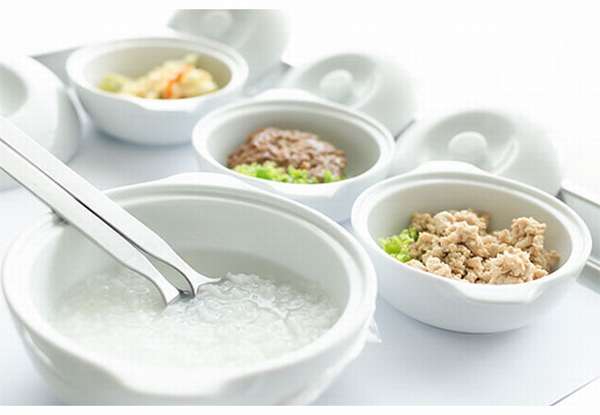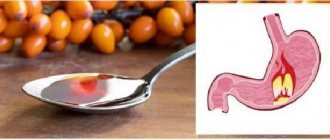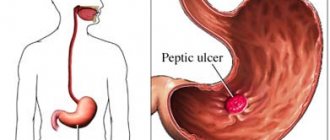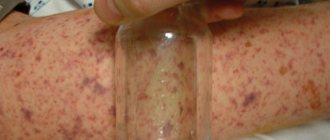The gag reflex is a complex condition in which a large number of muscles from different groups are involved. The reflex is regulated in the brain. This is a kind of protective mechanism against toxins or large amounts of heavy food entering the gastrointestinal tract. Vomiting without fever and diarrhea can occur as a result of the influence of various negative factors.
Possible causes of vomiting in an adult
Vomiting is the final resolution of an attack of nausea. Both conditions are beyond human control. The gastric eruption reaction performs one important function: cleansing the digestive tract from dangerous irritating elements and preventing intoxication of the entire body.
Doctors often record cases where the cause is unpleasant odors or the specific taste of dishes or products. We must not forget that vomiting can be the main, only symptom of various diseases.
One-time
The following diseases and conditions can be the causes of single attacks:
- Indigestion of heavy fatty foods. After overeating, a person may feel heaviness in the stomach, pain, and gas formation. This is due to the fact that the pancreas cannot cope with a large volume of fat, which provokes the formation of ketone bodies, which excite the brain's vomiting center, causing a cleansing reaction.
- Taking hormonal or anti-tuberculosis medications.
- Eating poor quality food. In some cases, vomiting is accompanied by fever, but if the intoxication is minor, the body can only react with a single eruption of stomach contents.
- Traumatic brain injury, concussion or brain tumor. In these cases, fountain vomiting is observed. Indicates neurological disorders. The main symptoms include nausea and dizziness.
- Metabolic disease. Diseases in this category often develop as a result of a hereditary factor. The most well-known condition is diabetes mellitus. Pathology requires careful medical monitoring. Vomiting occurs on cereal products, glucose, and whole milk. If food intolerance is observed, treatment consists of avoiding them.
- Meningitis, epilepsy, encephalitis. Diseases affect the vomiting center in the brain, which provokes cleansing.
- Intestinal obstruction. It develops as a complication of a number of pathologies of the gastrointestinal tract after myocardial infarction. Constant symptoms are bursting, cramping pain in the abdomen and nausea, which ultimately leads to vomiting of stagnant contents. Surgery will help alleviate the patient’s condition and cleanse the intestines.
- Nervous or mental problems. Most often they develop due to inflammation of the nerves, the growth of tumors, and neuritis. The person may suddenly lose balance, feel dizzy, and regurgitate food.
- Inflammation of the digestive organs. This category includes numerous diseases, including gastritis, cholecystitis, and pancreatitis. They provoke a reflex due to the inability of inflamed mucous membranes to properly process incoming food. The food comes out in pieces, often the mass contains bile and mucus.
- Emotional disorder, stress.
- Pregnancy. This is one of the first signs of the birth of a new life. The time of occurrence is morning. There are no other symptoms. Before cleansing, you feel nauseous, which quickly passes.
- Heart pathologies: anemia, hypertension or hypotension. Vomiting without diarrhea rarely occurs; it is usually preceded by dizziness, surges in blood pressure, and nausea.
- Motion sickness while riding in transport.

Multiple
A persistent gag reflex causes physical and mental exhaustion of the patient. In all cases, it is accompanied by rapid pulse, weakness, chills, and dizziness. This condition is dangerous to health and life; it is important to quickly establish the cause of the illness.
- Acute stomach. An emergency situation in which the patient indicates severe pain of varying intensity and character. Analgesics don't help. There is increased salivation, sweating, and pale skin. The cause is acute cholecystitis, appendicitis, intestinal obstruction, perforated ulcer.
- Food poisoning. If the product eaten was contaminated with an intestinal infection, then in the next few hours the victim will vomit. Trembling may occur throughout the entire body. These are signs of intoxication. Diarrhea may accompany them.
- Foreign body lodged in the esophagus. When swallowing food or performing oral procedures, accidental ingestion of an object or food may occur. It becomes difficult for the patient to breathe, foam and pain appear in the throat. Symptoms vary depending on the affected part of the esophagus. The body begins to get rid of the “stranger” by frequent vomiting. When the body remains inside for a long time, dangerous complications develop that pose a threat to life. Medical attention required.
- Hepatitis. Liver disease is often accompanied by bouts of vomiting and yellow discoloration of the skin. Characteristic signs: dark urine, light-colored feces.
- Rupture of cerebral vessels. The patient experiences dizziness, unbearable nausea, may lose consciousness and vomit the contents of the stomach.
- Reflux esophagitis. Regurgitation, unpleasant sensation in the throat, chest pain, vomiting. All this is a symptomatic picture of a hiatal hernia or cardinal sphincter insufficiency. In severe cases, stenosis of the esophagus develops, which requires surgical intervention.
- Oncology. Severe pathology is characterized by an effect on the peripheral and central systems. Due to intoxication of the body, intracranial pressure increases. The source is a tumor in the brain, kidney or liver failure, metastases in organs. Repeated gag reflex is often the only symptom.
- Infectious diseases. Due to the effects of toxins released by pests, the secretion of the stomach glands increases, pancreatic juice is released, the walls of the digestive organs are stretched, which leads to impaired motility.
- Inhalation of toxic substances, gases, heavy metals causes nausea and vomiting in an adult without fever due to the effect on the cerebral vomiting center.
We recommend reading
- Headache and nausea: causes, what it is, diagnosis and treatment
- Can vomiting be caused by fever?
- What is the danger of green vomit?
Each of these factors requires a medical examination.

Why does my stomach hurt after poisoning?
Most poisonings occur due to toxic substances entering the gastrointestinal tract. The stomach is the first to take the blow, which provokes the appearance of pain. The reason for this may be the following factors:
- activity of pathogenic microorganisms;
- violation of acid-base balance;
- irritation of the walls of the organ;
- rejection of the mucous layer;
- formation of ulcers and erosions.
Important: toxins provoke the destruction of the mucous membrane that protects the endothelium. Then toxic compounds penetrate into the bloodstream, causing inflammation and disruption of tissue trophism. In severe cases, necrotic processes may develop.
Due to the negative effects of toxins on the stomach, gastritis or gastroduodenitis often develops. The digestive and motor function of the gastrointestinal tract also deteriorates, and dysbacteriosis occurs. Vomiting can cause vascular ruptures and damage to the mucous membrane. All this leads to the occurrence of pain and its persistence for some time after poisoning.
Treatment methods for the condition
If stomach cleansing occurs rarely and is associated with overeating or taking medications, be careful about your food intake. Sudden reflexes for no apparent reason require examination to make an accurate diagnosis. Seek advice from a therapist. The doctor will examine the symptomatic picture and, if necessary, refer you to specialists such as a neurologist, gastroenterologist, or surgeon.
Constant debilitating attacks require medical attention. At home, the patient is recommended to have a gentle diet. Any smoked and fatty foods, carbonated and sweet drinks, baked goods, and dairy products are prohibited. A suitable diet of porridge, broths, maybe a little banana.
It is important to maintain a drinking regime! To prevent dehydration, you need to drink water-salt solutions: Regidron, its analogues. The instructions describe how to take the medication correctly. Course 2-3 days.
To remove toxins in case of poisoning or infection, it is recommended to take sorbents. Polysorb, Enterosgel and their analogues have a good effect.
In case of vomiting caused by the use of toxic substances or medications, gastric lavage is performed. To do this, use a weakly colored solution of potassium permanganate or water in a large volume, followed by pressing on the root of the tongue.
The method is prohibited for use if the victim is unconscious.
What information is missing from the article?
- Methods for eliminating vomiting in children
- Doctors' opinion
- Medicine Reviews
- Traditional recipes for vomiting
Proper nutrition after poisoning
In case of poisoning, the functioning of all digestive organs is disrupted : peristalsis slows down, the mucous membranes of the walls of the stomach and intestines are affected, and acidity decreases. In these conditions, proper nutrition is essential for successful recovery.
Nutrition after poisoning is based on certain rules:
- for the first 2 days after the acute period, it is advisable not to eat at all, but only drink water, herbal infusions, vitamin drinks from rose hips, blueberries, blackberries;
- then you need to eat often, but in small portions;
- when switching to a nutritious diet, it is better to start with homemade white crackers and weak tea, adding other foods to the diet gradually;
- the intervals between meals should be equal and approximately 2 hours;
- You should drink 2 liters of liquid daily and be sure to drink a glass of water before meals.
Products and dishes that are recommended after poisoning:
- porridges cooked in water: rice, buckwheat, wheat “Artek”, corn, oatmeal;
- boiled and steamed vegetables;
- steamed or baked low-fat fish;
- fresh bananas in the form of puree, baked apples;
- sauerkraut;
- after a few days, if you feel well, the diet can be supplemented with boiled chicken, rabbit, and turkey;
- Jelly is a useful drink;
- from dairy products you can eat low-fat cottage cheese, yogurt, live yogurt in small quantities;
Dishes must be warm and always freshly prepared.
It is not recommended to use for the first time after poisoning:
- protein products: eggs, milk, meat;
- canned food, smoked meats, pickles;
- spicy dishes, spices;
- fresh fruits: grapes, plums, pears, peaches;
- fresh bread, confectionery, baked goods;
- fats, including butter;
- salads made from raw vegetables, especially with dressings;
- coffee, carbonated drinks, alcohol.
The restoration process is a troublesome matter, requiring a lot of time and patience. To achieve a complete recovery, it is necessary to use the entire range of therapy: take medications, stick to a diet, exercise, get a good night’s sleep and, of course, take care of yourself. Remember that it is easy to upset your health, but it is much more difficult to restore it.
Vomiting is a reflex that you cannot control. When you feel sick, you release the contents of your stomach through your mouth. Most importantly, here are 35 ways to treat your stomach after vomiting, with causes and consequences.
Before we give you information about ways to treat stomach after vomiting, here I am giving you information about several causes as well as consequences of vomiting, read below:
Causes of vomiting
Below are some causes of vomiting:
- Flu
- Binge eating
- Food poisoning
- Stress
- Motion sickness
Effects of vomiting
Some effects you may feel include:
- Nausea
- Weakness
- Dizziness
- Stuffy nose
Stomach treatment
Below are ways to treat stomach after vomiting:
- Lie on your side
Lying on your back may lead to vomiting again. When you lie on your left side, stomach acid can again trigger nausea. Meanwhile, when you lie on your right side, you relax your esophagus. This way, you reduce the likelihood of more vomiting.
- Sit down
Sitting is another option you can do after vomiting. Make sure your body is upright. When your body and head are upright, you allow yourself to feel better. Your stomach will rise correctly and calm down. Sitting can also prevent nausea as you become more relaxed.
What to do if the whole family takes turns vomiting
With repeated attacks of vomiting, which occur in all family members in turn or simultaneously, it is rational to suspect rotavirus infection. Symptoms: nausea, pain in the epigastric or lower abdomen, chilliness, frequent diarrhea. The temperature may remain at normal levels.
The patient needs medical attention.
Antipyretic medicine for intestinal flu is indicated only when the temperature goes beyond 39 degrees. The drug for treatment is prescribed by the doctor after identifying the nature of the origin of the pathogen. Antibiotics are powerless and often dangerous.
To improve the functioning of the digestive tract and restore damaged mucous membranes, sorbents Activated Carbon, Smecta and probiotics Linex, Acipol, Bifidumbacterin are recommended.
It is important to follow a gentle diet without sweets, salty foods, and dairy products.
What to do if you feel disgusted with food?
If you notice a long-term lack of appetite, to find the cause of this condition, first of all, you need to consult a therapist. If the patient does have a health problem, he will be referred to another specialist who can look into his case in more detail. Causes of aversion to food. A decrease in appetite can be observed after smoking and drinking alcoholic beverages, drinking coffee, stress, pain and an increase in body temperature. At the beginning of the meal, a person should experience a slight feeling of hunger, but one should not overeat. It is better to eat in a quiet environment, in a place where there are no unnecessary external stimuli that distract from a measured meal.
The increased load on the nervous system causes a refusal to eat, since all the body’s energy has already been spent on overcoming stress. He simply does not have the strength to accept and process food. In such situations, you can help the body redistribute energy through short fasting. When deciding to stop eating, you need to undergo an examination and consult a specialist. He will be able to help the patient choose a diet based on the characteristics of a particular case and the needs of the body, in order to optimize the process of the body restoring lost strength and energy.
You should listen to your body's signals, and if it does not require food, it is better not to try to forcefully fill your stomach. Fasting is often prescribed for patients who need to lose weight to improve their well-being, and sometimes to reduce stress, for example, on their back. People who have experienced the positive effects of therapeutic fasting become more picky about food, giving preference only to healthy and high-quality food in the future.









